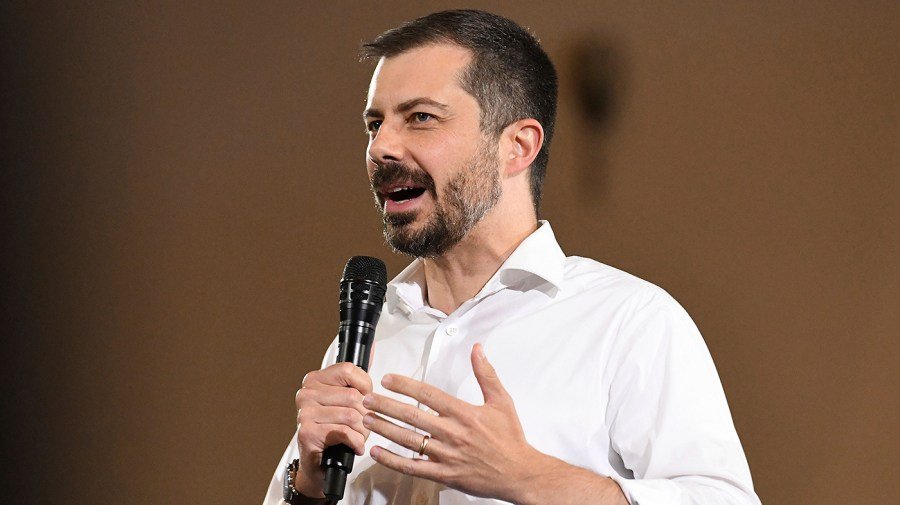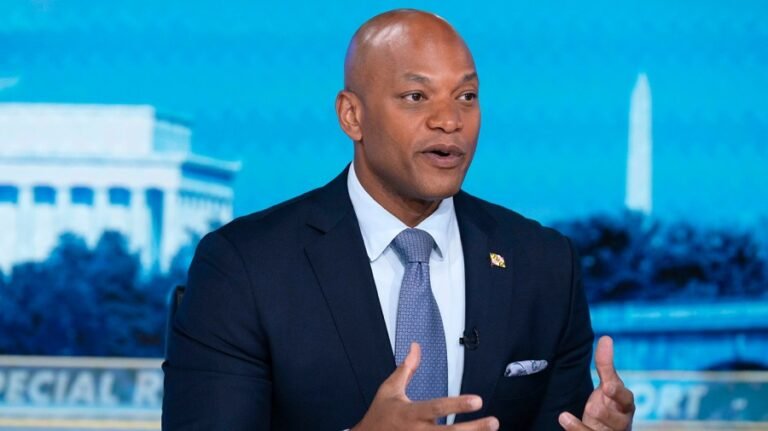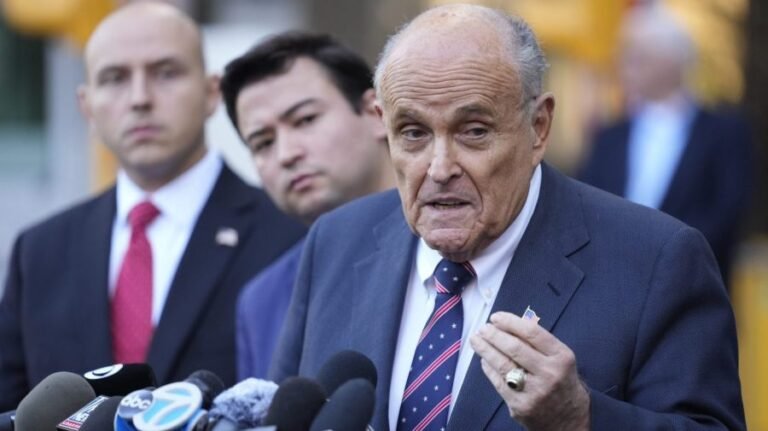
No one can deny that Pete Buttigieg is a highly skilled and articulate politician. While mayor of South Bend, Indiana’s fifth-largest city with a population of 100,000, he became a major contender for the 2020 Democratic presidential nomination, narrowly winning the Iowa caucuses and finishing a strong second in the New Hampshire primary.
Buttigieg’s swift political rise catapulted him into President Joe Biden’s Cabinet, where he served as Transportation secretary for four years. Now, with his sights clearly set on the 2028 presidential nomination, the latest polling averages for the Democratic primary show him in third place, behind former Vice President Kamala Harris and Gov. Gavin Newsom (D-Calif.).
But midway through this month, Buttigieg revived what could be a real problem: the perception that he behaves too much like a political windsock, shifting with strong breezes rather than sticking with conviction.
Buttigieg, appearing on “Pod Save America,” avoided taking a position on whether the U.S. should continue with shipping arms to Israel. Typical of Buttigieg’s equivocal rhetoric was his statement that “I think we need to insist that if American taxpayer funding is going to weaponry that is going to Israel, that that is not going to things that shock the conscience.”
Sharing three minutes of word-salad from one of Buttigieg’s non-answers, former Obama administration official Ben Rhodes tweeted, “Pete is a smart guy and I admire a lot of what he’s done, but I have absolutely no idea what he thinks based on these answers.”
He repeatedly talked his way around talking an actual position on U.S. arms shipments to Israel, which Human Rights Watch, Amnesty International and other human rights groups have accused of committing genocide in Gaza. When Buttigieg did offer a decipherable answer, it was tone-deaf to such realities. “I think that we, as Israel’s strongest ally and friend, you put your arm around your friend when there’s something like this going on, and talk about what we’re prepared to do together,” he said.
Days later, Buttigieg performed a quick swerve to put himself more in line with critics of Israel, stating that he would support an arms embargo on Israel and the recognition of a Palestinian state as part of a two-state solution.
The abrupt change underscores that Buttigieg is vulnerable to charges of making U-turns whenever it is expedient. A notable example is how he swiftly and drastically reversed course on Medicare for All during his presidential campaign.
In February 2018, eyeing a run for president, he tweeted: “I, Pete Buttigieg, politician, do henceforth and forthwith declare, most affirmatively and indubitably, unto the ages, that I do favor Medicare for All, as I do favor any measure that would help get all Americans covered.”
Buttigieg began 2019 by declaring that he was “all for” a Medicare for All system. In April, he was still talking quite favorably about Medicare for All, calling it “very much a compromise position between nationalized medicine and fully private payer and provider … that’s the middle ground.”
But by early autumn, Buttigieg was speciously denouncing Medicare for All as a plan that would kick “150 million Americans off of their insurance in four short years” — lambasting the very same position that he had embraced the year before “affirmatively and indubitably.”
In a September debate, Buttigieg ramped up his attack on Medicare for All, confronting its major supporter Sen. Bernie Sanders (I-Vt.) by saying, “I trust the American people to make the right choice for them. Why don’t you?”
An online Buttigieg ad also jabbed at Sen. Elizabeth Warren (D-Mass.) for supporting Medicare for All, telling voters, “I trust you to make the right health care decisions for yourself and your family” — slickly implying that Medicare for everyone would not entail such trust. Another ad from Buttigieg went further, declaring that his own new plan differed from “the Sanders-Elizabeth Warren vision” because “it doesn’t dictate it to the American people and risk further polarizing them.”
Buttigieg started to tout an approach that he called “Medicare for All Who Want It.” But Rep. Ro Khanna (D-Calif.), a national co-chair of the Sanders campaign, pointed out that Buttigieg’s plan “won’t bring the administrative costs down of private insurers or maximize negotiation with Big Pharma and hospitals.”
But that aspect of Buttigieg’s plan was a selling point rather than a drawback for donors from the health insurance and pharmaceutical industries, who had begun to pour sizable donations into his campaign war chest. During the first half of 2019, Buttigieg ranked second among the 20 Democratic candidates receiving contributions from those sources.
A spokesperson for the group Justice Democrats, Waleed Shahid, charged that Buttigieg’s about-face reeked of opportunism. “Buttigieg was for Medicare for All before he was against it,” he stated. “What happened this summer that made him abandon Medicare for All? He realized he was never going to beat Warren and Sanders as a progressive.” Shahid attributed the sudden shift to a calculation by Buttigieg that “he could raise tons of cash from corporate executives in the pharmaceutical and insurance industry.”
Many politicians are apt to adjust their policy positions over time for a variety of reasons. But Buttigieg has shown a remarkable knack for giving close observers whiplash as he pivots toward whatever he evidently sees as political advantage.
In the Democratic field on the horizon for the 2028 presidential nomination, Buttigieg now seems to personify how ambition can erode values. He is likely to face a primary electorate with little patience for excessive cunning at the expense of clear principles.
Norman Solomon is cofounder of RootsAction and executive director of the Institute for Public Accuracy. His book “War Made Invisible: How America Hides the Human Toll of Its Military Machine” was published in 2023.


